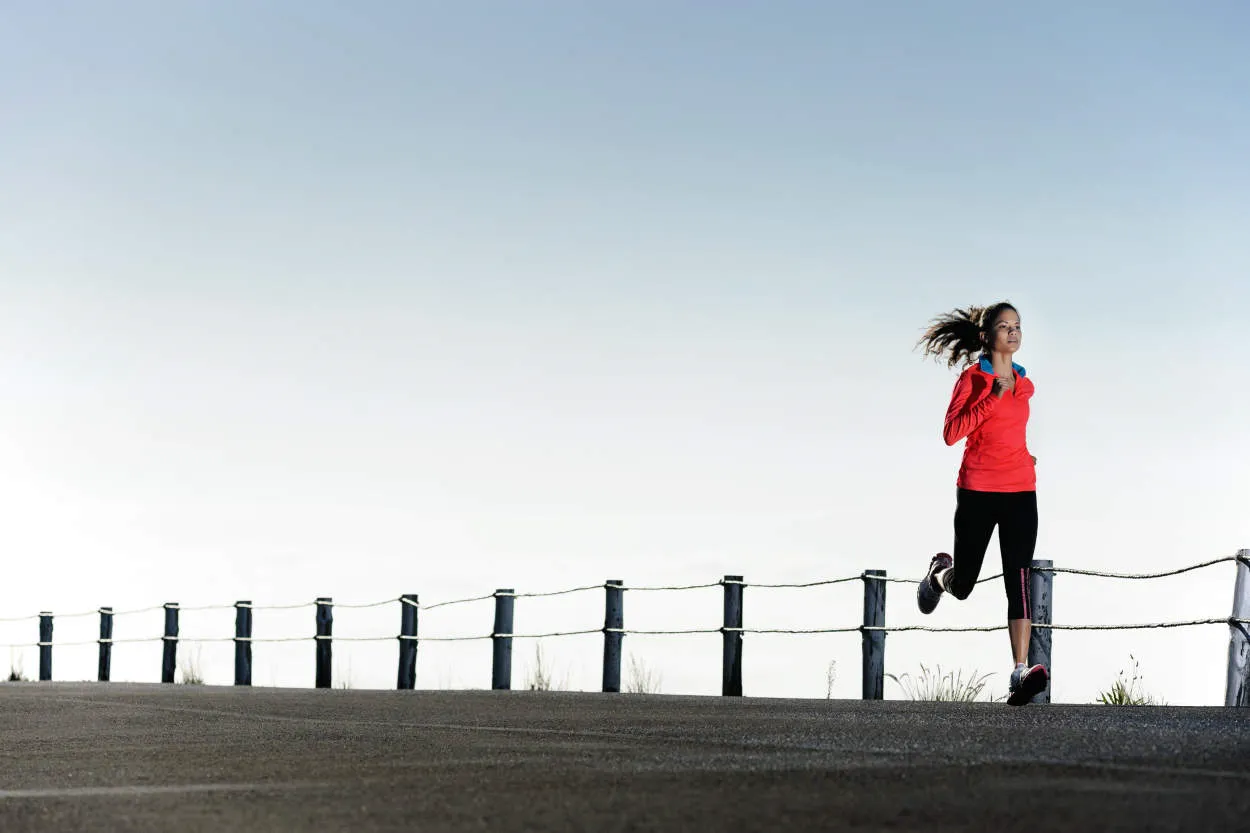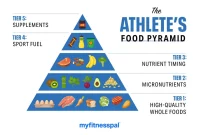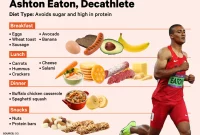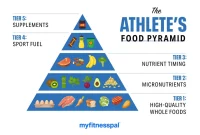Are you an athlete looking to adopt a gluten-free diet? In this article, we will guide you on how to navigate your way through gluten-free eating while optimizing your performance and overall health.
A gluten-free diet is crucial for individuals with gluten intolerance or celiac disease. However, for athletes who follow a gluten-free eating plan, it requires additional attention and careful planning to ensure optimal performance and recovery. Here’s a guide to help athletes navigate a gluten-free athletic diet:
Educate Yourself
First and foremost, athletes should learn about foods that contain gluten and become familiar with gluten-free alternatives. Wheat, barley, rye, and their derivatives are common sources of gluten. Look for gluten-free grains like quinoa, rice, corn, and oats (make sure they are certified gluten-free) to incorporate into your diet.
Plan Balanced Meals
Athletes require a well-balanced diet for optimal performance. Focus on including a variety of lean proteins, fruits, vegetables, and gluten-free whole grains in your meals. Incorporate sources of healthy fats, such as avocados, nuts, and seeds, as they provide essential nutrients and help with recovery.
Pre-Workout Nutrition
Prior to a workout, choose easily digestible foods that provide sustained energy without causing discomfort. Gluten-free options like bananas, yogurt, smoothies, or gluten-free toast with nut butter can be excellent choices to fuel your workout.
Post-Workout Recovery
After intense physical activity, it’s important to replenish your body with the right nutrients. Opt for gluten-free protein sources like lean meats, eggs, legumes, or plant-based protein powder to support muscle repair. Pair it with gluten-free carbohydrates, such as sweet potatoes or gluten-free grains, to replenish glycogen stores.
Snack Smart
When hunger strikes between meals, have gluten-free snacks on hand to keep your energy levels stable. Consider options like Greek yogurt, hummus with gluten-free crackers or veggies, mixed nuts, or gluten-free protein bars.
Stay Hydrated
Proper hydration is vital for athletes. Water should always be your primary choice. However, if you require electrolyte replacement, opt for gluten-free sports drinks or natural alternatives like coconut water.
Consult a Professional
Every athlete’s nutritional needs may vary, so it’s advisable to consult with a registered dietitian or sports nutritionist. They can provide personalized guidance and help create a comprehensive gluten-free eating plan tailored to your individual requirements.
In conclusion, maintaining a gluten-free athletic diet requires knowledge, proper planning, and seeking expert advice when needed. By following these guidelines, athletes can fuel their bodies effectively and achieve peak performance.
Benefits and Challenges of Gluten-Free Eating
Following a gluten-free diet has become increasingly popular in recent years, not just for individuals with gluten sensitivities or Celiac disease, but also for athletes looking to optimize their performance. However, while there are certainly benefits to gluten-free eating for athletes, there are also some challenges that need to be addressed.
Benefits of Gluten-Free Eating for Athletes
1. Reduced Inflammation: Gluten has been known to cause inflammation in the gut, which can impact an athlete’s digestion and overall well-being. By eliminating gluten from their diet, athletes may experience reduced inflammation, leading to improved recovery and better performance.
2. Increased Energy Levels: Many athletes report feeling more energized after adopting a gluten-free diet. This can be attributed to the fact that gluten-containing foods often cause blood sugar spikes and crashes, whereas gluten-free options tend to provide a more steady release of energy.
3. Enhanced Digestion: Athletes rely on efficient digestion to absorb nutrients effectively. For those with gluten sensitivities, eliminating gluten can improve digestion, allowing for better nutrient absorption and ultimately supporting optimal athletic performance.
Challenges of Gluten-Free Eating for Athletes
1. Limited Food Choices: Gluten can be found in a wide range of foods, including bread, pasta, and baked goods. The challenge lies in finding suitable gluten-free alternatives that still provide the necessary nutrients for athletes. Additionally, gluten-free options can often be more expensive.
2. Nutritional Imbalances: Gluten-free diets can be lacking in certain essential nutrients, such as fiber, iron, and B vitamins, which are commonly found in whole grains. Athletes need to pay extra attention to ensure they are getting adequate amounts of these nutrients through alternative sources.
3. Social and Practical Considerations: Following a gluten-free diet may require extra effort when dining out, traveling, or attending social events. It can sometimes be challenging to find gluten-free options or educate others about the importance of cross-contamination for individuals with gluten sensitivities.
In Conclusion
While there are clear benefits to gluten-free eating for athletes, including reduced inflammation, increased energy levels, and enhanced digestion, there are also challenges to navigate, such as limited food choices, nutritional imbalances, and social considerations. Athletes interested in adopting a gluten-free diet should work with a nutritionist or dietitian to ensure they are meeting their nutritional needs while avoiding gluten.
Meal Ideas and Recipes for Gluten-Free Athletes
Being an athlete dedicated to a gluten-free diet doesn’t mean you have to compromise on taste or nutrition. With careful planning and the right ingredients, you can enjoy delicious and energizing meals that will support your athletic performance. Here are some meal ideas and recipes to help you navigate the world of gluten-free eating:
1. Power-packed Breakfast:
Start your day with a nourishing gluten-free breakfast. Whip up a batch of gluten-free oats topped with fresh fruits, nuts, and seeds. You can also opt for gluten-free pancakes made with almond flour and topped with Greek yogurt and berries.
2. Protein-packed Lunch:
For a satisfying midday meal, try a gluten-free quinoa salad with grilled chicken, mixed greens, and a variety of colorful vegetables. Another option is a gluten-free wrap filled with lean protein, avocado, and crunchy veggies.
3. Energizing Snacks:
Keep your energy levels up between workouts with gluten-free snacks. Try carrot sticks with hummus, gluten-free rice cakes topped with nut butter, or a homemade trail mix with gluten-free granola, dried fruits, and nuts.
4. Nutritious Dinner:
For dinner, opt for gluten-free pasta made from brown rice or chickpea flour, paired with a protein-rich sauce like grilled salmon or sautéed tofu. Alternatively, enjoy a hearty gluten-free vegetable stir-fry with brown rice or quinoa.
5. Recovery Smoothies:
After a tough workout, treat yourself to a refreshing gluten-free smoothie. Blend together almond milk, banana, spinach, and a scoop of gluten-free protein powder for a creamy and nutritious post-workout drink.
Remember to always read the labels and choose certified gluten-free products. Experiment with different ingredients and flavors to keep your meals exciting and enjoyable. With these meal ideas and recipes, you can stay on track with your gluten-free diet while fueling your athletic performance to the max!
Supplements and Nutrition for Gluten Intolerance
When following a gluten-free diet due to gluten intolerance, athletes need to pay extra attention to their nutrition to ensure they are getting all the necessary nutrients and fuel for optimal performance. In addition to focusing on whole, unprocessed foods, there are certain supplements that can support athletes with gluten intolerance. Here are some key supplements and nutritional considerations:
1. Multivitamin
A high-quality multivitamin can help fill any nutrient gaps that may occur due to limited food choices. Look for a brand that is specifically labeled gluten-free to avoid any potential cross-contamination.
2. Vitamin D
Many athletes, including those with gluten intolerance, are deficient in vitamin D. This essential vitamin plays a crucial role in bone health, immune function, and muscle strength. Consider adding a vitamin D supplement to your routine to ensure you are getting adequate levels.
3. Omega-3 Fatty Acids
Omega-3 fatty acids have anti-inflammatory properties and can help reduce exercise-induced inflammation. Include foods rich in omega-3s, such as fatty fish (salmon, tuna) or flaxseeds, or take a fish oil or flaxseed oil supplement to reap these benefits.
4. Probiotics
Probiotics support a healthy gut by promoting the growth of beneficial bacteria. They can help alleviate symptoms of gluten intolerance, such as bloating and digestive issues. Look for a probiotic supplement that is gluten-free and contains a variety of strains for optimal gut health.
5. B Vitamins
Gluten intolerance can sometimes lead to deficiencies in B vitamins, which are important for energy production and overall cellular function. Consider a B complex supplement to ensure you are meeting your needs.
6. Iron
Anemia is a common complication of gluten intolerance, as the damage to the small intestine can impair iron absorption. Athletes, in particular, need adequate iron levels for optimal oxygen delivery to muscles. Discuss with a healthcare professional about testing your iron levels and supplementing if necessary.
Remember, it’s important to consult with a healthcare professional or a registered dietitian before starting any new supplements. They can help determine the appropriate dosages and ensure they won’t interact with any medications you may be taking.
The Impact of Gluten-Free Diet on Performance
Gluten-free diets have gained popularity in recent years, not only among individuals with gluten sensitivities or celiac disease but also among athletes aiming to optimize their performance. This article explores the potential impact of a gluten-free diet on athlete performance.
Improved Digestion and Nutrient Absorption
One potential benefit of a gluten-free diet for athletes is improved digestion and nutrient absorption. Gluten, a protein found in wheat, barley, and rye, can cause digestive issues and inflammation in some individuals. By eliminating gluten from their diet, athletes may experience better digestion and absorb essential nutrients more efficiently.
Reduced Inflammation and Enhanced Recovery
Gluten has been associated with increased inflammation in certain individuals, which can hinder recovery after intense physical activity. By following a gluten-free diet, athletes may experience reduced inflammation, allowing for faster recovery and better overall performance.
Individual Variation in Response
It’s important to note that the impact of a gluten-free diet on performance can vary among individuals. While some athletes may notice significant improvements, others may not experience any differences. It’s essential to listen to your body and work with a qualified healthcare professional or registered dietitian to determine the most suitable approach for your specific needs.
Potential Nutritional Deficiencies
Eliminating gluten from the diet may result in the exclusion of certain whole grains, which can provide essential nutrients such as fiber, vitamins, and minerals. Athletes following a gluten-free diet should pay extra attention to ensure they are obtaining adequate amounts of these nutrients from other sources.
Conclusion
In conclusion, a gluten-free diet may have a positive impact on athlete performance by improving digestion, reducing inflammation, and enhancing recovery. However, it is essential to consider individual responses and potential nutritional deficiencies. Consulting with a healthcare professional or registered dietitian is crucial for athletes who wish to explore the benefits and challenges of a gluten-free diet.
Conclusion
For athletes who have gluten intolerance or follow a gluten-free diet, maintaining a proper nutrition plan is crucial for optimal performance. By understanding the potential sources of gluten and making informed food choices, athletes can ensure they are fueling their bodies effectively. Consulting with a registered dietitian who specializes in sports nutrition can provide valuable guidance in creating a well-balanced gluten-free meal plan tailored to individual needs.




